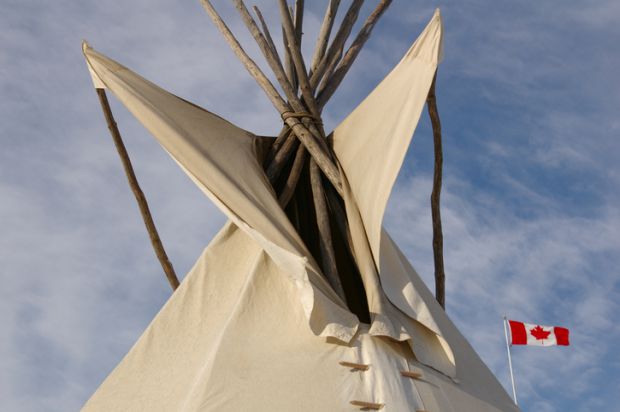Like post-secondary institutions in colonialized countries, the first Canadian universities had strong ties to religious institutions and to the alma maters of what their academics saw as their mother countries. By the late 1960s, secularity had become the norm, but the institutions were still dominated by academics and administrators from France, the UK, and especially (in Anglophone Canada), the US. Canadians believed, with some justification, that they were being frozen out.
There was, therefore, a movement to “Canadianise” academia and by the mid-1980s, the battle had been won; Canadians citizenship became a requirement for most academic positions.
Now, Canada is going through a similar transformation called “indigenisation”. This is the process of ensuring that universities are sensitive to the culture, knowledge, history, and language of aboriginal Canadians. It is evident in three important areas.
First, Canadian universities acknowledge that they are situated on land ceded to the Crown by treaties signed by certain groups of indigenous people. Convocations and major meeting increasingly begin with words such as “We [at the University of Manitoba] acknowledge that this university is located on the original land of Anishinaabeg, Cree, Oji-Cree, Dakota, and Dene peoples, and on the homeland of the Metis Nation.”
Some anthropologists have pointed out that, at some point during the past 400 years, some of the “acknowledged people” had actually migrated on to that land, displacing others who already considered it their territory. Scholars have even asked if these people were truly nations, as opposed to bands or family groups. The accusation is that ignoring historical evidence and sound definitions in order to appear sensitive to a particular indigenous group is not what universities are supposed to be about.
The second effect of indigenization is that aboriginal people are being hired to teach and to do research from indigenous perspectives. A recent Canadian advertisement “invites applications from Indigenous (eg, First Nations, Metis, Inuit) Scholars” and asks applications to include “Indigenous Canadian self-declaration verification”.
Undoubtedly, some very competent aboriginal academics have been hired through such affirmative action. But, as might be expected, critics have insisted that hiring committees should focus on applicants’ expertise, rather than their ethnic background.
Others have questioned the self-declaration of ethnic heritage. Throughout Canadian history, a number of people have falsely identified themselves as having indigenous backgrounds. For instance, Joseph Boyden, the well-known Canadian author who traded on his “aboriginal ancestry”, has recently been accused of having no discernible indigenous heritage. Undoubtedly, some applicants for hard-to-come-by university positions will make false declarations.
The third effect of indigenization is to infuse indigenous knowledge, values and ways of teaching and learning into a wide variety of subjects. The First Nations University of Canada, for example, states that its “science courses provide a balance between new findings and traditional [indigenous] knowledge.” Other Canadian universities are following this trend, and even if they don’t incorporate indigenous beliefs into their own courses, they give credit to transferring students who have completed indigenous science courses.
Many academics have pointed out that indigenization can have both positive and negative effects. It opens the way for the much-needed recognition of different, often competing, perspectives, and it recognizes the value of what Canada’s indigenous people contribute to our understanding of the world and human affairs. And there was little objection when indigenous knowledge was infused into native studies and anthropology, even though some academics have commented that there is no such thing as knowledge that is peculiar to one ethnic group.
But the appearance of indigenous science has raised more concerns. This is because science is supposed to be a discipline in which all truth claims are open to experimental refutation. Yet, those who have acted on that assumption have often been given a very rough ride.
The result is that many scholars are afraid to publically question the indigenization of knowledge for fear of being labelled neocolonialist or even racist. Current political thinking in both Canadian wider society and universities holds that indigenous knowledge comes from the elders, who respectful people – whether indigenous or non-indigenous – cannot legitimately question. Hence, although indigenous knowledge is so important that it must be taught, it is treated as so sacred it can’t be openly debated.
Originally posted in the Times Higher Education.
*Rodney A. Clifton Ph.D. (mailto: Rodney.Clifton@umanitoba.ca) is professor emeritus of sociology at the University of Manitoba and vice-president for research at the Frontier Centre for Public Policy. Gabor Csperegi Ph.D. (mailto: gcsperegi@ustboniface.ca) is professor of philosophy at the Universite de Saint-Boniface in Winnipeg, Manitoba.



